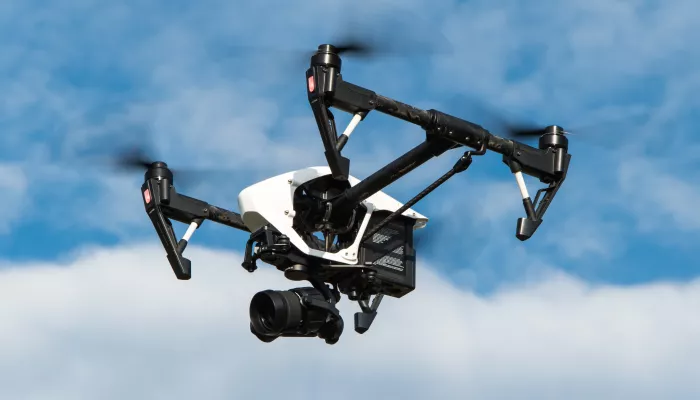No public drone use allowed
Drones are not permitted on any Kent Wildlife Trust reserve unless explicitly authorised via our reserves permit system. Any application must include:
- Proof of valid drone operator qualifications (e.g. A2 CofC or GVC)
- A current public liability insurance certificate
- A clear description of intended use and flight plan
Unauthorised drone use may be reported to the Civil Aviation Authority and other relevant authorities.
Why drones are restricted
- Wildlife disturbance: The noise and movement of drones can alarm and distress wildlife, particularly ground-nesting birds and sensitive species.
- Livestock welfare: Many of our conservation grazing animals—such as ponies, sheep, and cattle—are especially vulnerable to drone disturbance. The buzzing sound of small drones resembles a swarm of bees, which can provoke fear and unpredictable behaviour.
- Public safety and experience: Drones can cause discomfort or concern for other visitors and compromise the peaceful, natural atmosphere of our sites.
Designated site protections
Many Kent Wildlife Trust reserves are protected by national or international statutory designations, including Sites of Special Scientific Interest (SSSIs), National Nature Reserves (NNRs), Special Areas of Conservation (SACs) Special Protection Areas (SPAs) and Local Nature Reserves (LNRs).
Drone activity in these areas requires prior written consent from Natural England under the Wildlife and Countryside Act 1981. Flying a drone without consent is a potential offence and may result in enforcement action.
If you have a legitimate need to fly
Kent Wildlife Trust will consider drone use for conservation monitoring, survey work, or media production on a case-by-case basis. Permission will only be granted if the activity:
- Serves a clear conservation or educational purpose
- Minimises risk to wildlife and visitors
- Complies with all statutory requirements and airspace regulations
If you would like to apply for a drone permit or discuss your project, please contact our M&E team at:

